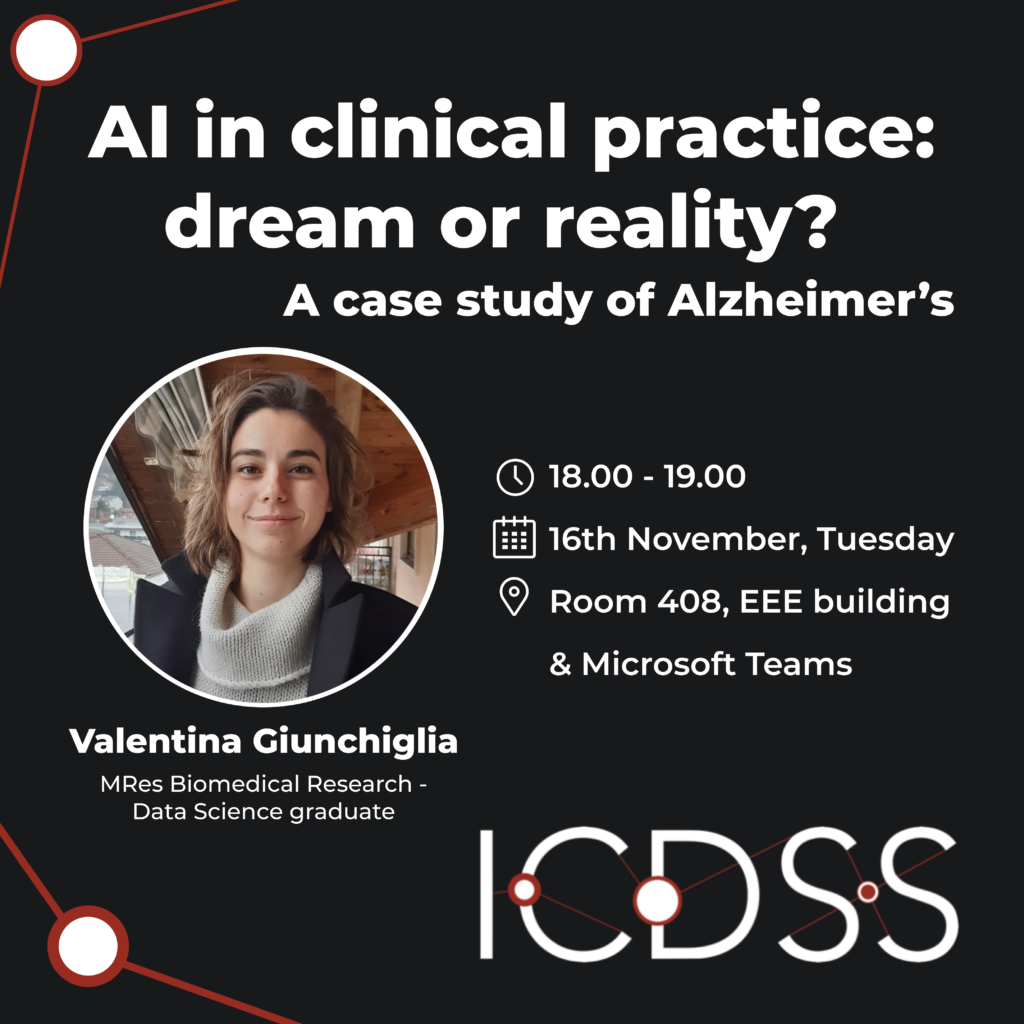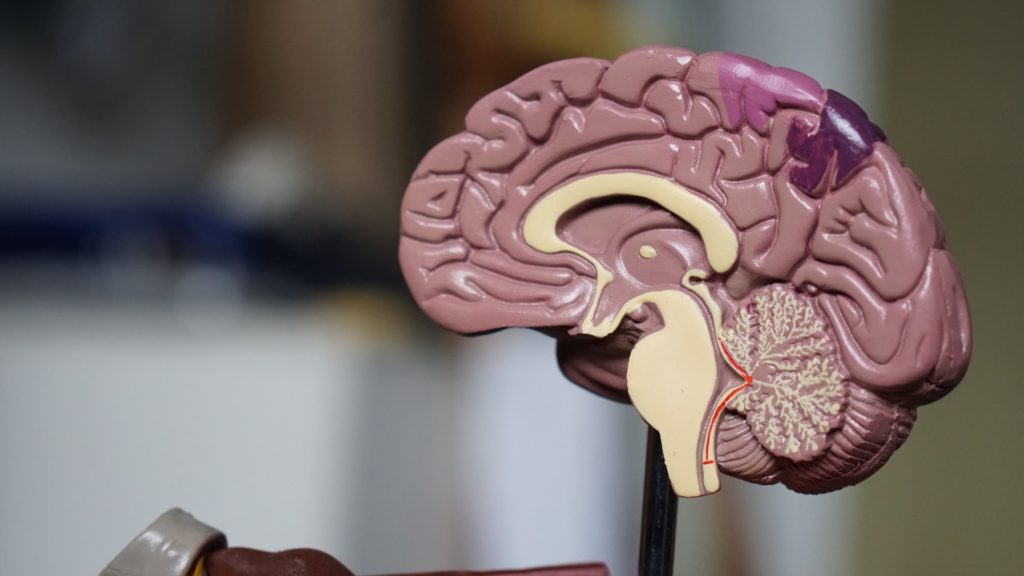The ICDSS Team are really excited to have Valentina, an alumni of Imperial College, share her research in the application of AI into the biomedical domain. She has also had a very unique career path, which might inspire some of our members in the community!
- Talk Title: AI in clinical practice: dream or reality? A case study of Alzheimer’s.
- Speaker: Valentina Giunchiglia
- Location: Room 408, EEE Building, Imperial College South Kensington Campus and Microsoft Teams
- Time and Date: 18:00 – 19:00, Tuesday 16/11/2021
- Tickets for the in person session are here. The Teams link will be provided in due course.

BIOGRAPHY
Valentina Giunchiglia recently graduated from the MRes in Biomedical Research – Data Science at Imperial College London, after completing a MA in Health Humanities at UCL and a BSc in Molecular Biotechnology – Bioinformatics at University of Heidelberg (Germany).
She will soon start working at Imperial College London in the field of computational neuroscience, and she plans to start a PhD the following autumn. She has a highly interdisciplinary background, as a result of previous work in different fields spanning from computational neuroscience, psychobiology, bioinformatics and computational pathology. She has a keen interest in the use of artificial intelligence (AI) to understand the connection between mind, brain and body and is deeply passionate in achieving the concrete application of AI results and discoveries in clinical practice. She is a recipient of the Imperial College Jean Alero Scholarship, of the Dean’s Prize for Biomedical Research (Data Science) and of the Collegiate Award for Biomedical Research.

TALK DESCRIPTION
Artificial Intelligence (AI) provides powerful tools that can be applied in many different fields and that are capable of solving complex problems, even beyond what we could have imagined many years ago. In biomedical research, AI algorithms can be used to reach diagnosis, predict disease progression and patients’ survival, recommend patients’ treatments and much more, which is all fascinating. But the question is: will these algorithms be ever applied in clinical practice and, in turn, improve people lives?
On one side, we have machine learning researchers that develop algorithms and obtain high accuracy models. On the other side, we have clinicians that cannot afford to make a mistake, and risk patients’ lives, because of an algorithm. Can clinicians trust blindly algorithms without fully understanding the reasons why they work or fail? Can they trust the black box nature of AI? Are the algorithms really generalisable or intrinsically biased towards the datasets used to implement them? This talk will try to reply to some of these questions while using Alzheimer’s as case study.
Alzheimer’s is a neurodegenerative condition that currently has no treatment. Being able to predict which early-stage patients are more prone to be converted into severe stages is fundamental in order to be able to develop efficient treatments.
This talk will present how AI was used to concretely predict Alzheimer’s progression and find disease (bio)markers. It will present the limitations of the data and algorithm and the ways they were addressed, with the final aim to obtain translatable results and, therefore, potentially applicable in clinical practice.